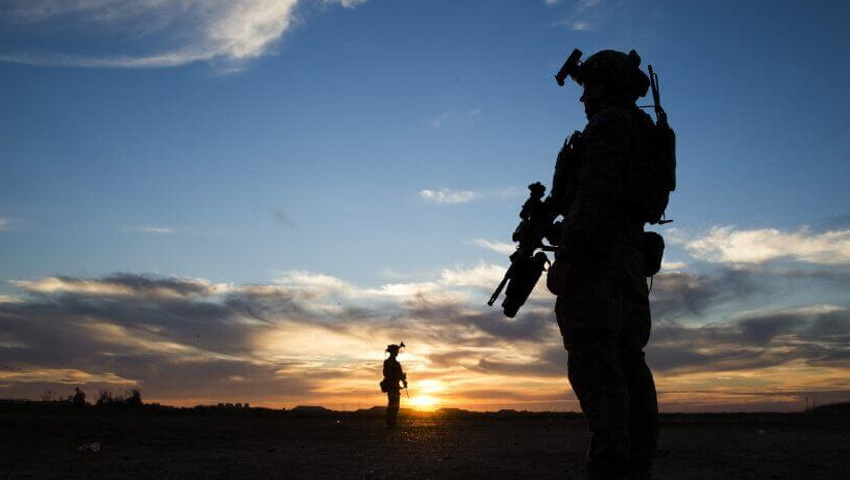The recent Taliban takeover in Afghanistan has provided a unique opportunity for regional superpowers to leverage the unfolding political chaos.
To continue reading the rest of this article, please log in.
Create free account to get unlimited news articles and more!
Few analysts were surprised with the immediacy with which Turkey and Qatar acknowledged Afghanistan’s new Taliban regime. Indeed, both nations positioned themselves as a gateway between the West and the Taliban to capitalise on the chaos; playing host to US-Taliban conferences, and facilitating the evacuation of Westerners and humanitarian visa holders from Afghanistan.
The tumultuous change of government in Afghanistan provided the Turkish-Qatari alliance with a new opportunity to bolster their sphere of influence into central and southern Asia. Just last year, Jonathan Spyer in the Jerusalem Post hypothesised that Turkey was building its own Islamist global alliance alongside Pakistan, Qatar and Malaysia. Considering the Taliban’s longstanding relationship with the Pakistani government, the country is a natural fit in this alliance.
Already, the the burgeoning alliance has withstood extreme posturing from regional actors. In fact, in the face of a Gulf blockade on Qatar, Turkey came to the aid of their partner with military and humanitarian assistance in a stark rebuke to traditional Gulf unilateralism.
Although, this isn’t the first time the pair sought to flex their muscles in the region.
“Both Doha and Ankara supported the Arab Spring uprisings and the initial electoral victory of the Muslim Brotherhood in Egypt and its resurgence elsewhere in the Arab world, especially in the Gulf kingdoms, led by Saudi Arabia,” Professor Amin Saikal wrote in ASPI’s The Strategist this week.
“Turkey’s President Recep Tayyip Erdogan, whose desire to be a central player in the Middle East and the Muslim world has caused Saudi Arabia and its allies to be wary, backed Qatar to overcome the difficulties and fear arising from the blockade. He beefed up Turkey’s military base in Qatar and provided it with whatever assistance it required, including facilitating its transactions with Europe and beyond.”
Dina Esfandiary explained to the BBC that the political mood across the Middle East had shifted back toward Islamism, with the Turkish-Qatari alliance with the Taliban only strengthening their position as leaders within the Islamist world.
“It is for Afghanistan, it doesn't mean it's the case for the [Middle East]. Over the course of the last 10 years the region has gone back and forth non-stop between Islamist groups and non-Islamist groups,” Esfandiary explains.
Amazingly, President Erdogan hasn’t even sought to downplay his ideological affiliations with the Taliban.
Speaking at a press conference, President Erdogan announced that “because Turkey does not have anything against [the] Taliban’s ideology, and since we have nothing conflicting to [the] Taliban’s belief, I believe that we can better discuss and agree with them on these issues”.
Twitter user Alex Galistky shared the clip of President Erodogan at the press conference.
As the Taliban begins consolidating its brutal rule, remember that Turkey’s president Erdogan endorses their ideology.
— Alex Galitsky (@algalitsky) August 15, 2021
Don’t for a second think our good friend and NATO ally won’t seek to take advantage of Afghanistan’s collapse to enrich itself at the expense of civilians. pic.twitter.com/pwXjNRGud2
However, the relationship between the Turkish-Qatari alliance and the Taliban is likely to extend beyond political posturing, with the pair building deep inroads into the Afghan economy.
Professor Saikal continues, “[Qatar] has also indicated a willingness to make a substantial financial contribution to the Taliban’s coffers and activate the dying Afghan economy.”
Afghanistan is a natural ally to the emerging Turkish-Qatari axis in the Middle East and Asia. Such an alliance will hasten Pakistan’s willingness to step out from the shadow of their Saudi benefactors and join a newer, more brazen Islamist-Sunni power base.
Get involved with the discussion and let us know your thoughts on Australia’s future role and position in the Indo-Pacific region and what you would like to see from Australia's political leaders in terms of partisan and bipartisan agenda setting in the comments section below, or get in touch with

 Login
Login







